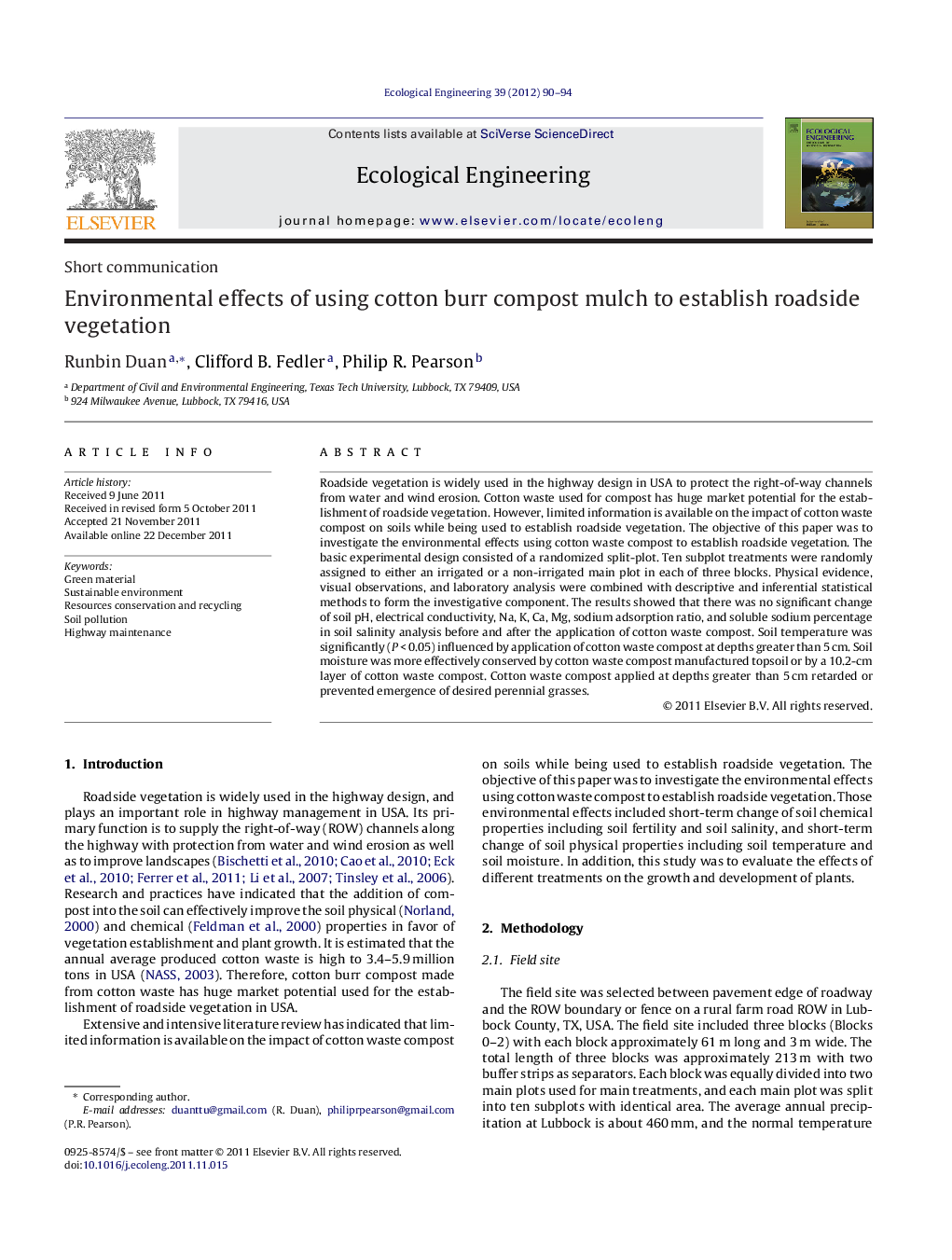| Article ID | Journal | Published Year | Pages | File Type |
|---|---|---|---|---|
| 4390211 | Ecological Engineering | 2012 | 5 Pages |
Roadside vegetation is widely used in the highway design in USA to protect the right-of-way channels from water and wind erosion. Cotton waste used for compost has huge market potential for the establishment of roadside vegetation. However, limited information is available on the impact of cotton waste compost on soils while being used to establish roadside vegetation. The objective of this paper was to investigate the environmental effects using cotton waste compost to establish roadside vegetation. The basic experimental design consisted of a randomized split-plot. Ten subplot treatments were randomly assigned to either an irrigated or a non-irrigated main plot in each of three blocks. Physical evidence, visual observations, and laboratory analysis were combined with descriptive and inferential statistical methods to form the investigative component. The results showed that there was no significant change of soil pH, electrical conductivity, Na, K, Ca, Mg, sodium adsorption ratio, and soluble sodium percentage in soil salinity analysis before and after the application of cotton waste compost. Soil temperature was significantly (P < 0.05) influenced by application of cotton waste compost at depths greater than 5 cm. Soil moisture was more effectively conserved by cotton waste compost manufactured topsoil or by a 10.2-cm layer of cotton waste compost. Cotton waste compost applied at depths greater than 5 cm retarded or prevented emergence of desired perennial grasses.
